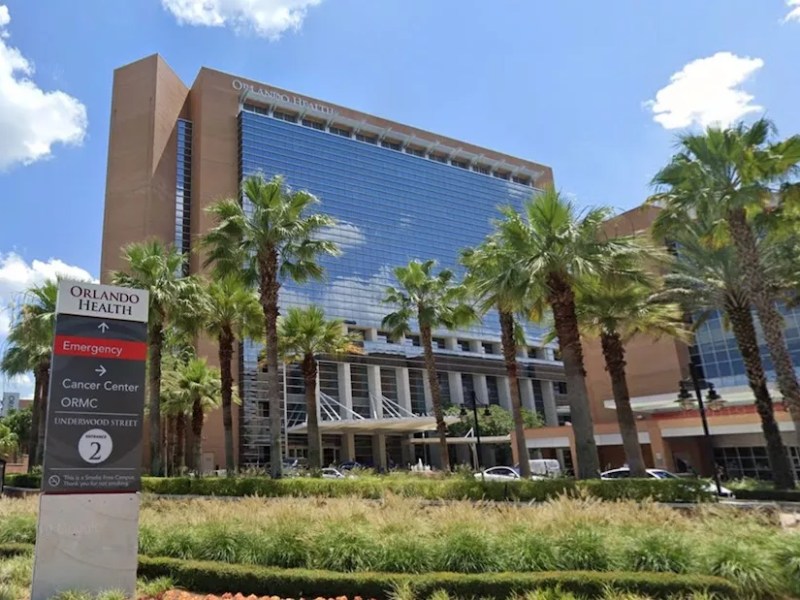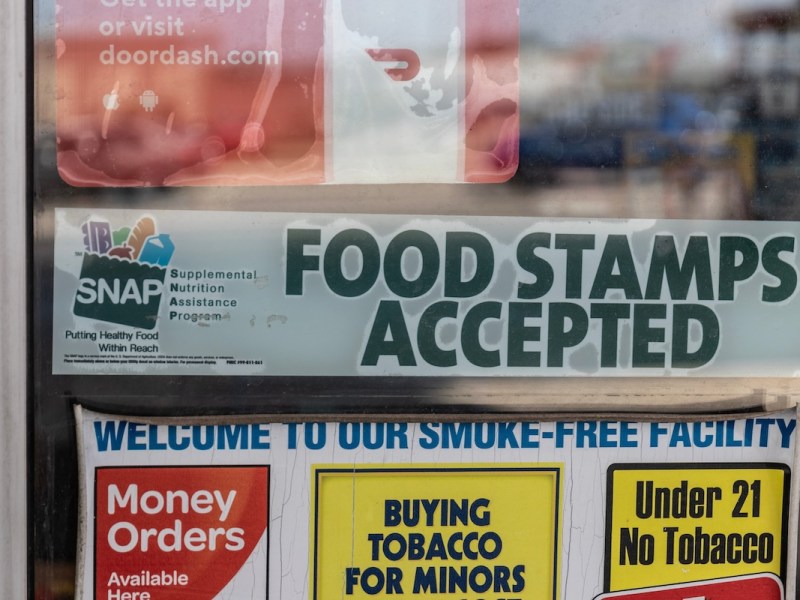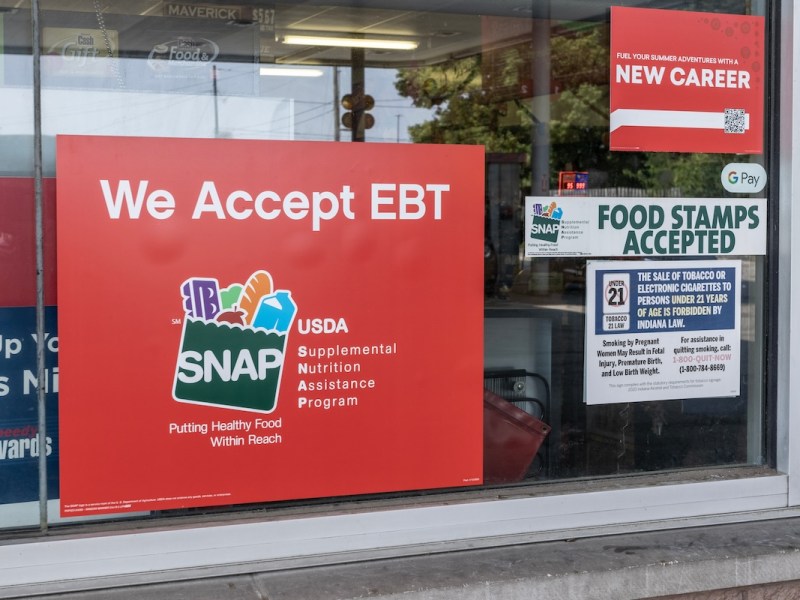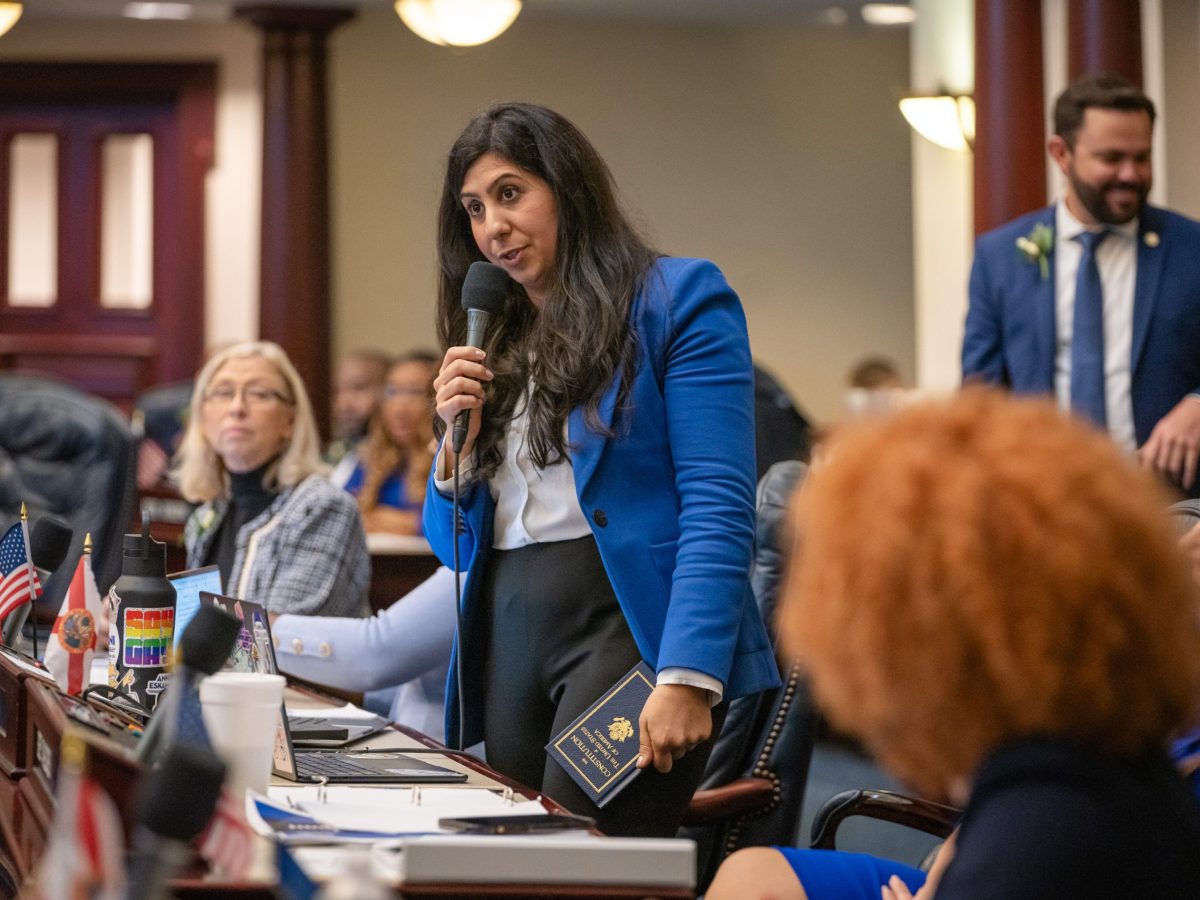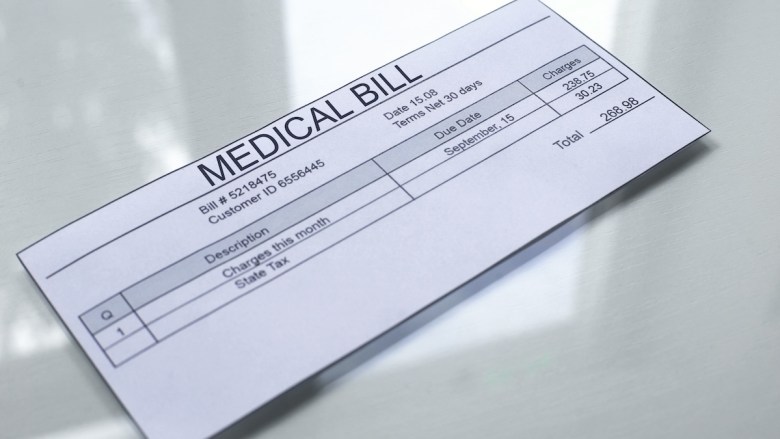 Credit: Shutterstock
Credit: Shutterstock
As local elected officials scramble to address threats to the social safety net posed by the federal government shutdown, the Orange County government had at least one piece of positive news to share this week.
Through a partnership with the nonprofit Undue Medical Debt, Orange County announced this week it has managed to relieve a total $515 million in medical debt held by more than 300,000 residents. The county announced an initial round of $472.5 million in debt relief back in May, and the second round of $42.9 million in relief was announced Tuesday.
“Medical debt is more than a financial burden, it is an emotional weight,” said Sheila Santiago, a local resident who received $7,000 in debt relief. “Having that weight taken off my shoulders allows me to focus my time and attention on my health.”
The medical debt relief initiative, funded by about $4 million of federal pandemic relief funds distributed under the Biden Administration, was made possible through buying up debt from local hospital systems — such as Orlando Health — and third-party collection agencies.
No one formally had to apply for the program. Instead, Undue Medical Debt worked with local hospitals and collection agencies to identify and buy up the debt of qualifying residents. Each dollar invested in the process erases about $100 of medical debt, according to the nonprofit.
Orange County commissioners first approved a contract with Undue Medical Debt last summer to lead the program, becoming the first county in Florida to do so. Founded in 2014 by former debt collection executives, Undue Medical Debt has partnered with more than two dozen other local state governments across the U.S. — including Arizona, Michigan, and Illinois — to wipe out medical debt for pennies on the dollar.
“We’re thrilled to continue our partnership with Orange County, bringing much-needed financial and emotional relief to more residents,” Allison Sesso, president and CEO of Undue Medical Debt, said in a statement. “This initiative exemplifies how local government can make a transformative impact on families who are least able to pay these burdensome debts.”
Medical debt is considered the leading cause of bankruptcy in the U.S., affecting roughly four in 10 adults, according to the nonpartisan nonprofit KFF. Pandemic relief funds received by Orange County (roughly $270 million total under the American Rescue Plan Act of 2021) came with restrictions on how the funds could be used, and had to be fully obligated for a particular purpose by Dec. 31, 2024.
Medical debt is considered the leading cause of bankruptcy in the U.S., affecting roughly four in 10 adults
This means the funds are already depleted or are otherwise unavailable to use for other purposes like emergency SNAP funding.
According to county documents, the bulk of Orange County’s direct allocation from ARPA was obligated for social and community services, the county’s public health response, and “revenue recovery investments” such as technology upgrades.
But county commissioners were also persuaded by a coalition of local advocates last summer to dedicate just a small portion of remaining funds to help relieve the burden of medical debt for residents, many of whom were (and still are) struggling to get by after double-digit rent hikes that hit the county after the expiration of COVID-related eviction moratoriums in late 2020.
“Throughout my 11 years as a social worker in this county, I’ve seen that medical debt has created incredible barriers for people to gain stability,” Adam Hartnett, a licensed clinical social worker with Poverty Solutions Group, told county commissioners last year. “I’ve worked with families who have hundreds of thousands of dollars in medical debt who simply can’t move economically because of this burden.”
The campaign for the initiative was led by Central Florida Jobs with Justice, a coalition of local labor, faith and social advocacy groups that has also backed a proposed expansion of Medicaid. Samuel Delgado, an organizer with CFJWJ who pushed for the debt relief, told Orlando Weekly he was “thrilled” to see the program continue to provide “much-needed relief” to his neighbors, especially in the current political climate.
“As political attacks on working class people have set back America’s healthcare system even further this year, we are continuing our efforts to organize here in Orange County in pursuit of additional opportunities to address obstacles that stop people from getting the care they need,” Delgado said in a statement. “We hope our community and its leadership will continue to show out like they did for medical debt relief, especially amid the difficulties that lie ahead.”
Related Stories
The debt relief initiative was made possible thanks to federal funds provided under the Biden administration’s American Rescue Plan Act.
The medical debt relief plan will be funded by $4.5 million in unspent federal pandemic relief funds.
Difficulties ahead
Medical debt could become an even more mainstream reality for U.S. adults if the health insurance tax credits that Democrats and Republicans are currently fighting over expire, as scheduled, by the end of 2025.
These enhanced tax credits have helped millions of low- and middle-income Americans over the last four years afford health plans purchased through the Affordable Care Act (ACA) Marketplace at a lower cost. Without them, monthly premiums will more than double, on average.
Medical debt is already more likely to affect people of color, low-income families and seniors, and people who don’t have any health insurance altogether. But healthcare advocates have warned that if the enhanced tax credits expire, millions will choose to go without health insurance due to the unaffordable cost.
“If you want to vote an evil bill in to take away healthcare from people, do it by yourselves,” U.S. Congressman Maxwell Frost (D-FL) said at a rally earlier this month, urging Republicans to agree to extend the subsidies.
The issue has been a primary point of contention in federal budget talks that have left the federal government shut down since Oct. 1. Republicans blame Democrats for the shutdown, arguing that the tax credits issue can be negotiated once the government reopens, while Democrats argue that reaching an agreement on this issue can’t wait.
“Remember when Donald Trump ran on lowering costs? Well, now he’s running away from lowering costs with this key negotiation,” U.S. Congressman Darren Soto, a Democrat from Kissimmee, shared in a news conference earlier this month.
Florida Democrats have also been sounding the alarm on a looming pause to federal food assistance that is distributed monthly to nearly three million Floridians through the federal Supplemental Nutrition Assistance Program (SNAP).
If the government shutdown persists into November, the Florida Department of Children and Families — the state administrator of the program – has already warned that SNAP benefits will be paused until the government reopens and federal funding is restored. More than 40 million U.S. adults and families are served by the program nationwide.
“For families already struggling under record food and housing costs, the loss of this critical support would be catastrophic,” a letter to Florida Gov. Ron DeSantis, penned by Florida Democratic Senate leaders this week, reads. “Local food banks and pantries have already reported overwhelming demand and depleted supplies. … We are days away from a full-blown hunger emergency that will leave families without food during the holiday season. The state cannot stand by.”
DeSantis, meanwhile, has rejected Democrats’ call for him to declare a state of emergency, or to tap into the state’s $5 billion “rainy day fund” for emergency food aid.
“Did those Democrats write a letter to [U.S. Senate Minority leader] Chuck Schumer asking him to stop filibustering the spending?” DeSantis asked at a news conference Wednesday. “Come on.”
Subscribe to Orlando Weekly newsletters.
Follow us: Apple News | Google News | NewsBreak | Reddit | Instagram | Facebook | Bluesky | Or sign up for our RSS Feed
Related Stories
Nearly 3 million people are expected to lose access to the federal food assistance program
Florida has the fourth largest SNAP enrollment nationwide with 2.94 million relying on the assistance for food security
Nearly 3 million Floridians are at risk of going hungry if government shutdown stretches into November
Related



